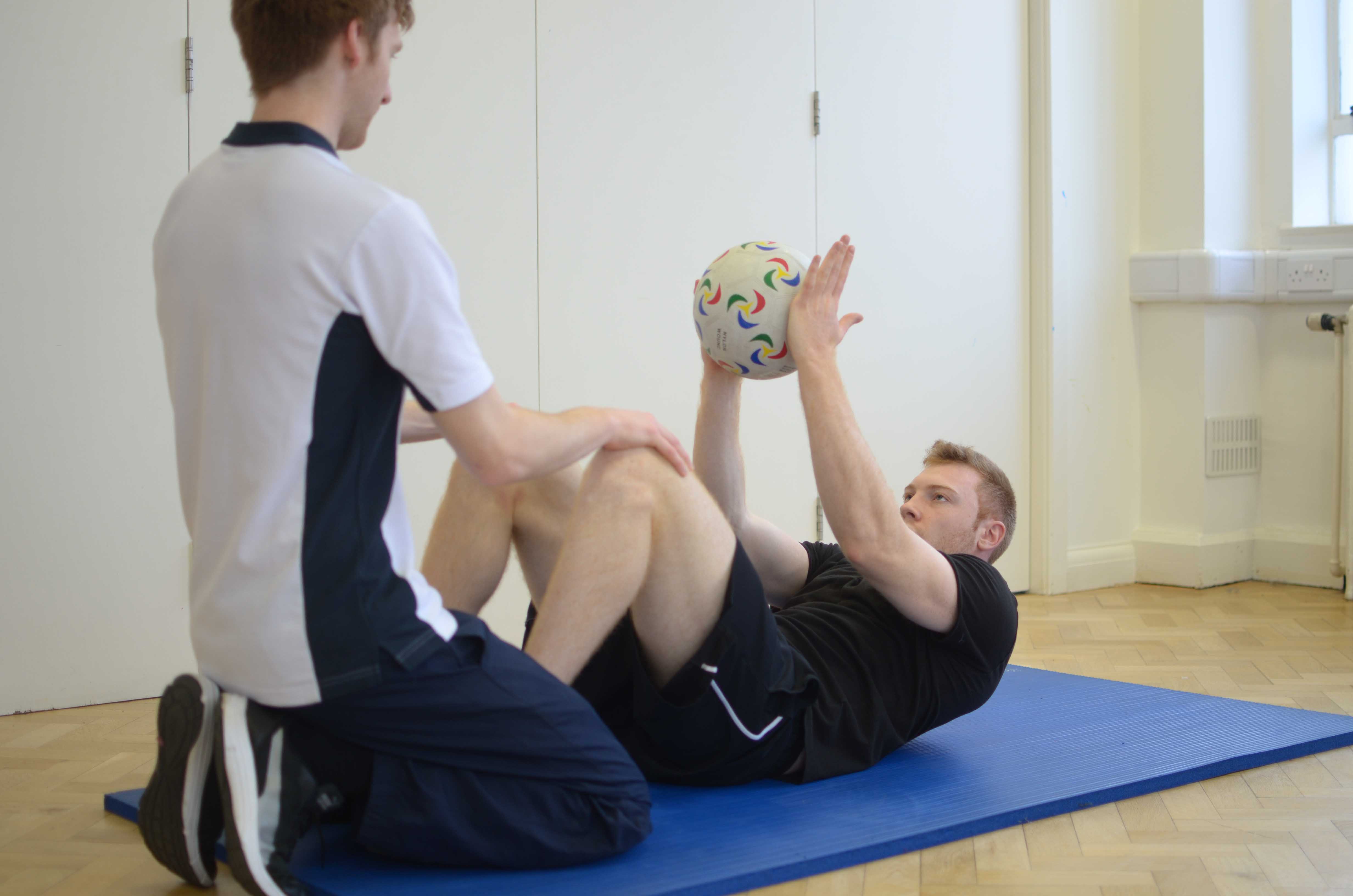What is invasive mechanical ventilation?
Invasive ventilation is a complex treatment that uses a ventilator (breathing machine) to help severely ill patients continue to breathe. It delivers air to people who struggle to move air into and out of the lungs independently. People who require invasive ventilation are commonly on an intensive care unit (ICU) or intensive therapy unit (ITU), however is some extreme cases people may be managed with invasive ventilation within their own home.
Invasive ventilation is delivered through a tracheotomy (hole in the neck) or endotracheal tube (tube that enters via the mouth), and controls breathing by creating pressure in the airways to support airflow into and out of the lungs.
 Above: Improving lung function and exercise tolerance through exercise supervised by a specilaist physiotherapist
Above: Improving lung function and exercise tolerance through exercise supervised by a specilaist physiotherapistTypes of invasive ventilation
There are three types of ventilator used:
- Pressure controlled ventilators - Can be constant flow, time cycled (breaths given at fixed intervals), or pressure limited (once the pre-set pressure has been reached, it is maintained).
- Volume controlled ventilators – these ventilators deliver small volumes of air consistently, they can be set for spontaneous triggering by the patient, or can be time cycled (breaths given at fixed intervals).
- High frequency ventilators– these ventilators use a piston to actively move gas in and out of the lungs.
When would someone require invasive mechanical ventilation?
Ventilators can be adjusted to match the requirements of the patient, frequency of breaths, or maximum volumes can be altered to achieve effective ventilation. Some of the different ways a ventilator may be used include:
- to assist spontaneous breathing
- to replace spontaneous breathing
- to ensure big enough breaths are taken in
- to ensure big enough breaths are blown out
What are the benefits of mechanical ventilation?
Mechanical ventilation can have the following benefits for the acutely ill patient:
- Controls breathing pattern
- Allows breathing to feel easier
- Maintains normal oxygen levels
- Maintains ventilation (breathing and gas exchange)
Who would benefit from mechanical ventilation?
A ventilator is only used in patients severely ill to maintain or assist ventilation (breathing). Depending on the patient, the ventilator can do all the breathing, control when breaths are taken, or assist in helping take deep breaths in / out.
For some patients the ventilator may incorporate supplemental oxygen for patients whose gas exchange capacity has decreased, either through lung damage or obstruction of a major airway.
Some examples of conditions that may require a ventilator to help with their breathing include:
- ARDS
- Heart failure
- Pneumonia
- Sepsis
- Trauma
- Sleep apnoea
- Following surgery – should complications have arisen
Physiotherapy for people who are invasively ventilated
Physiotherapy is used for invasively ventilated patients to achieve the following benefits:
- Increased lung volumes
- Reduced volumes of secretions (phlegm) sitting in the bottoms of the lungs – by removing these secretions the risk of developing a chest infection is significantly decreased

 0330 088 7800
0330 088 7800





































